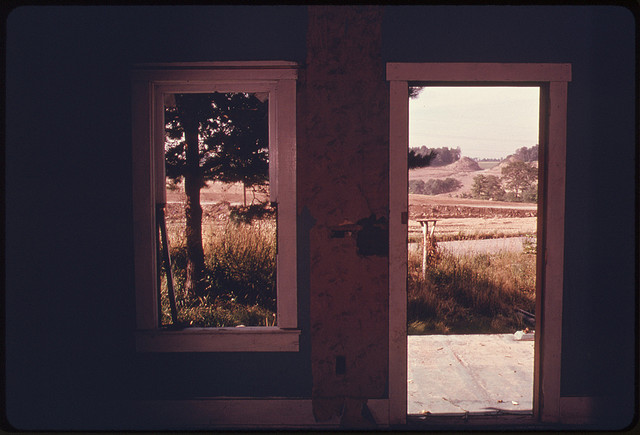
It was terrible, really, to hear of the town that went away. It was a nearby town, a little burg or a hamlet, the sort of place that requires archaic adjectives because it was so archaic. At least, what I remember of that town was archaic, but these days my memory is not so good. I am not old. The town that went away was old, though; and because it went away, it is hard to remember it exactly.
This is how it happened (or so those of us who vaguely remember it think): One day, the town was there. The next day, it wasn’t.
This is what was left in its place: a forest of old growth trees (how old they were, and so quickly!) filled with birdsong and clear streams that feed into Lake Glacier. Lake Glacier is so named because at some point in history a glacier formed it. We can remember its name because the lake is still with us. We see it when we drive over the causeway that once bridged the town that went away with the town on the other side of the lake, which is Shuttleworth. Shuttleworth is called Shuttleworth because at one time it was worthwhile to shuttle oneself from the town that went away over to the town on the other side of the lake. No one thinks it is still worthwhile to shuttle over to Shuttleworth, though, as it is a town in such decline and there are no jobs for people there, or fun things happening, but that is another story altogether.
The town that went away was there one day, then, and gone the next. Where it went to, no one knows. We have taken soil samples, water samples, samples of animal dung, and samples of air quality. We have dug down into the earth to see if an unknown sinkhole swallowed the town that went away, and we have searched the sky with binoculars and telescopes. It is not among the clouds, so far as we can see, nor among the heavenly bodies, and it does not exist somewhere in the ground beneath our feet. There are no remains of previous inhabitants to uncover, not even those who had been buried in the town that went away’s cemetery. And there are no witnesses to the disappearance, probably because they disappeared with the town that went away.
It is as if those other towns that bordered the town that went away had dreamed of its existence, and it is as if we have now woken from that dream to find the world to be a much different place than we had thought.
What was it we’d thought, again? We couldn’t remember this, as we couldn’t remember what, exactly, we’d been dreaming. Or why we trusted our dreams.
*
Secret Americas features writing about images from the U.S. National Archives.
Image via Flickr – View from the Interior of an Abandoned Farmhouse Across Land Strip Mined by Coal Companies Off Route #800, near Edgewater Park, Ohio, and Barnesville, National Archives and Records Administration College Park. The photograph was taken in July 1974 by Erik Calonius.
Christopher Barzak is the author of One for Sorrow, The Love We Share Without Knowing, and a new collection of short stories, Before and Afterlives. He teaches fiction writing in the Northeast Ohio MFA program at Youngstown State University.